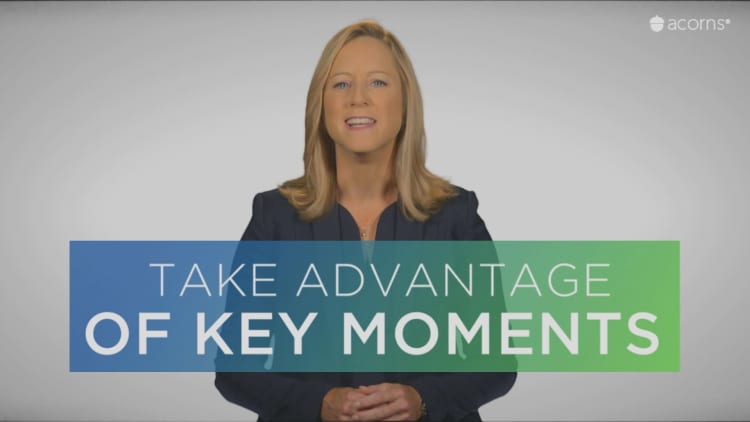A strong stock market and low unemployment rate have not dispelled Americans' fears that the rising costs of everyday expenses threaten their long-term financial health.
Almost half (47%) of Americans believe that cost of living is the biggest threat to their financial security and long-term investments, according to TD Ameritrade's financial disruptions survey, which polled over 1,000 U.S. adults with at least $10,000 in investable assets.
Almost just as many (44%) also fear the rising cost of health care.
Source: Harris Poll on behalf of TD Ameritrade
That's not surprising, Tom Butch, managing director of retail distribution at TD Ameritrade, tells CNBC Make It. Health care, in particular, has had "high prominence and visibility" as a national issue for so long, which has spurred many concerns about its availability and relative cost.
In total, Americans spend an average of about $5,000 a year on out-of-pocket health care costs, including insurance, prescriptions and medical supplies, according to the latest consumer spending data from the Bureau of Labor Statistics. That's double the amount Americans spent in 1984, according to an analysis of the Bureau of Labor Statistics Consumer Expenditures Survey by data company Clever.
Meanwhile, the cost of living — including food, housing, education and medical costs — increased by 2.3% over the past year alone, according to the Bureau of Labor Statistics's Consumer Price Index. The cost of medical care rose 4.6% in 2019, the largest year-over-year increase since 2007, the BLS reports. Housing also jumped 3.2% last year, while education expenses rose 2.1% and food prices increased about 1.8%.
In contrast, real wages effectively remained stalled last year, showing only a 0.2% year-over-year increase, according to the PayScale Index. But looking longer term, Payscale found median wages, when adjusted for inflation, declined 9% since 2006.
There's a "certain fragility" right now, Butch says. While the two biggest sources of significant financial disruption in the past, employment and investment performance, have receded, Americans are still feeling on edge because the markets and workforce will likely shift.
In order to shield your future from financial threats, Butch recommends developing a comprehensive financial plan and building an emergency savings fund of three to six months of living expenses.
Setting up regular, automatic transfers from your checking account to a savings account will help grow your emergency fund over time. If you're tight on money at the moment, start small with just $5 a day or $5 a week. And consider a high-yield savings account, which typically pays higher interest that compounds over time.
This message on the importance of good financial habits is one many Americans seem to have taken to heart. In fact, Americans say they're better prepared for financial disruptions today than when TD surveyed U.S. adults five years ago.
"People are generally better prepared to deal with disruptions — more have a steady income, more have gotten the message about putting money aside," Butch says, which will help them weather any future downturns.
If you haven't taken these steps yet, there's still time to start putting a plan into place today.
Don't miss: 41% of Americans would be able to cover a $1,000 emergency with savings
Like this story? Subscribe to CNBC Make It on YouTube!



